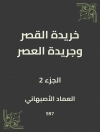In ‘Love-Songs of Childhood, ‘ Eugene Field presents a tender collection of poems that delve into the unfettered joys and poignant sorrows of childhood. Crafting his verses with a melodic charm, Field employs a rhythmic style characterized by playful language, vivid imagery, and a profound sense of nostalgia. The collection captures the innocence and whimsy of youth, painting scenes that resonate with readers across generations, all the while demonstrating the Victorian poetic tradition’s emphasis on emotion and nature. Eugene Field, often celebrated for his contributions to children’s literature, was deeply influenced by his own experiences and reflections on innocence. Born in 1850, Field’s background in journalism and poetry provided him with a keen understanding of language, allowing him to weave everyday experiences into artful verse. His longing for the simplicity of youth and his keen observations of children further inspired this timeless collection, imbuing it with sincerity and warmth. This enchanting volume is highly recommended for readers of all ages who seek to revisit the tender moments of their childhood. Field’s deft lyrical touch will resonate with anyone yearning for the simplicity and innocence so often lost in adulthood, making ‘Love-Songs of Childhood’ a poignant addition to any literary collection.
เกี่ยวกับผู้แต่ง
Eugene Field (1850-1895) was an American writer, best known for his children’s poetry and humorous essays. His literary contributions are characterized by their whimsical humor and tender sentimentality—qualities that made him endearingly known as the ‘Poet of Childhood.’ Born in St. Louis, Missouri, Field explored various professions before his passion for writing took primacy. He cultivated a reputation as a journalist and columnist before publishing his most renowned collection, ‘Love-Songs of Childhood’ in 1894. This work exemplifies Field’s unique ability to capture the innocence and imagination of childhood, weaving together lyrical verses that appeal to both children and adults. His poems, such as ‘Wynken, Blynken, and Nod, ‘ often incorporated mythical and fantastical elements that captivated the imaginations of his readers. Field’s sentimental and imaginative style resonates with the Romantic tradition, yet his poems are infused with a Victorian charm that was both accessible and heartwarming. The enduring appeal of Field’s poetic voice lies in its simplicity and its poignant evocation of childhood wonders and affections. Today, Field’s writings continue to be celebrated for their capacity to evoke the nostalgic experience of childhood, serving as a testament to his impact on American literary culture.












